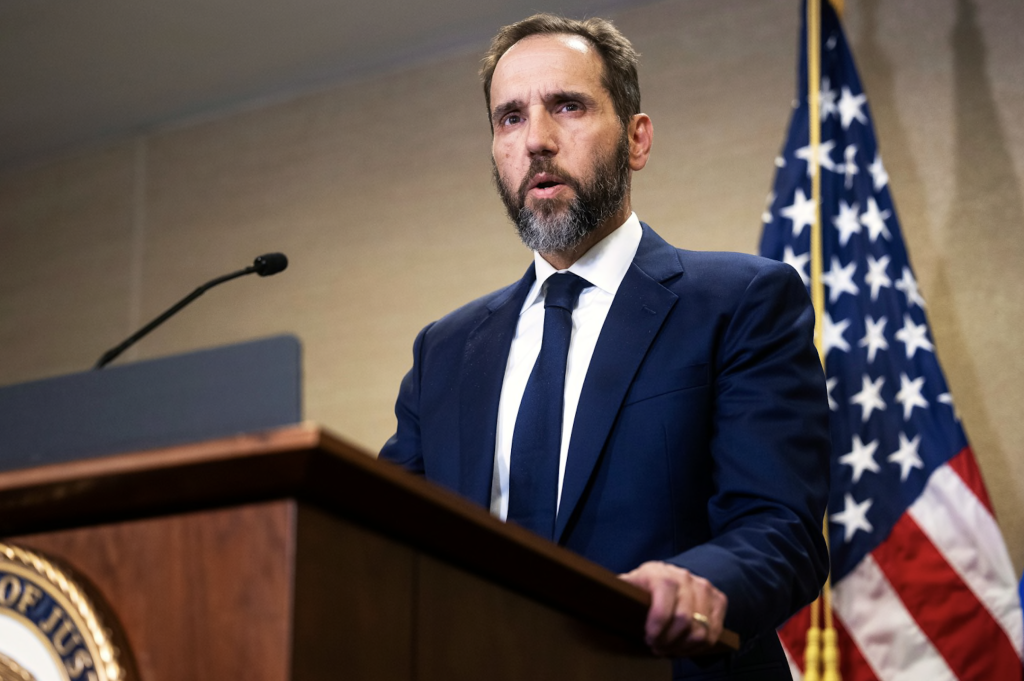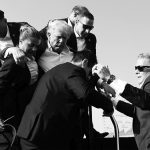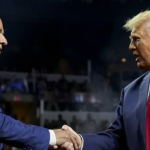Special Counsel Jack Smith has decided against seeking a major hearing to present evidence in the election-interference case against Donald Trump before voters go to the polls Nov. 5, Bloomberg reported.
The move means that it’s unlikely a so-called mini-trial, which would include evidence and testimony from possible blockbuster witnesses like former Vice President Mike Pence, would take place before the presidential election.
The decision is a win for Trump and his lawyers, who have fought efforts to reveal the substance of allegations against the former president. If Trump wins the election, the case would collapse as the Justice Department has a policy against prosecuting sitting presidents. Trump could also order the department to throw it out.
Instead, Smith and his team are carefully revising the case against Trump, according to the people familiar, who asked not to be named discussing a confidential matter. The case has no chance of going to a jury trial before the election as a result of delays stemming from the Supreme Court’s ruling last month that he has some presidential immunity from criminal charges. If Democratic nominee Kamala Harris wins the election, Smith could still proceed with prosecuting Trump.
Trump campaign spokesman Steven Cheung didn’t comment on Smith’s plan. He said Trump’s team will continue to fight the cases against him, calling them “witch hunts” that should be dismissed in light of the Supreme Court’s ruling.
Landmark Ruling
The Supreme Court’s landmark ruling held that former presidents have broad immunity from prosecution over conduct related to their official duties, but not for private acts. District Judge Tanya Chutkan in Washington, who is overseeing the case, had been expected to hold hearings before the fall to examine which alleged conduct are official acts that can’t be prosecuted and which are private acts that can still be charged following the high court’s ruling.
Separately, Trump is seeking to delay a Sept. 18 sentencing for his conviction in a New York criminal case over hush-money payments on the grounds that it amounts to “election interference.” He faces as long as four years behind bars on 34 felony counts of falsifying business records to conceal paying adult film star Stormy Daniels to stay quiet about an alleged affair before the 2016 election.
In the election inteference case, Smith may not want to “show his hand” and reveal key evidence or witnesses that might jeopardize his chances for success at an eventual trial, said Mary McCord, a former federal prosecutor who served as acting head of the Justice Department’s national security division. Smith and other Justice Department leaders also don’t want to appear “blatantly political,” she said.
In light of the Supreme Court’s immunity ruling, Smith is focused on building the strongest case to persuade a jury to deliver a guilty verdict that would hold up on appeal and create a sound legal precedent, said the people.
Smith’s team and Trump’s lawyers are scheduled to file briefings Aug. 30 on how they want to proceed ahead of a Sept. 5 hearing before Chutkan. Smith is expected to propose a pathway forward in that filing and during the hearing, the people familiar said.
Chutkan could overrule Smith and order a major hearing prior to the election. More than likely, however, she will seek a middle ground in order to make factual determinations about what can and can’t be charged.
“If there’s a way forward that narrows the issues substantially that the government is proposing, and potentially even the Trump team would agree to, that’s just better for all concerned,” said McCord, executive director of the Institute for Constitutional Advocacy and Protection at Georgetown Law School. “It avoids some of the really tricky issues.”
Fast-Tracked Earlier
Earlier this year, Smith had raced to advance the case, urging the Supreme Court in April to quickly decide the issue of presidential immunity — all in an apparent effort to obtain a verdict before voters go the polls.
But the Supreme Court’s July 1 ruling that former presidents have immunity from prosecution for official acts committed while in office means that Smith must revise the charges against Trump, or possibly issue a new indictment.
Smith indicted Trump in Washington one year ago on charges that include conspiracy to defraud the US and obstruct the certification of the 2020 election. Smith filed a separate case against Trump in Florida for mishandling classified documents and obstructing justice. US District Judge Aileen Cannon dismissed that case last month saying it was unconstitutional. Smith is appealing.
“The charges are already out there,” said Brandon Van Grack, a former federal prosecutor who is now a partner at the law firm Morrison & Foerster. “You can understand why the department and public would have an incentive to resolve these questions before an election, but that can’t happen now.”
Source: CF






